Lecturer/Speaker Bios
David Arcos
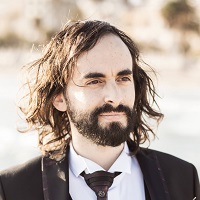 David Arcos is Director of Software at Qilimanjaro.
David Arcos is Director of Software at Qilimanjaro.
Javier Aula-Blasco
 Javier Aula-Blasco is a Senior Research Engineer at the Barcelona Supercomputing Center (BSC). He holds a PhD in Psycholinguistics, an MSc in Natural Language Processing and an MSc in Language Education. Javier is the Head of Data and Model Evaluation at the Language Technologies Lab. On the Data side, his and his teams’s work aims at acquiring pre- and post-training data in a legal and traceable way, at generating and validating synthetic data, and at efficiently processing the data and finding optimal data distributions for training. On the Evaluation side, the team aims at continue developing a comprehensive evaluation setup for multilingual language models encompassing capabilities, bias and safety, at generating high-quality evaluation multilingual datasets, and at improving the human side of model evaluation. Javier is also a Core Lead in the Skill, Safety and Trust Evaluation working group of the Trillion Parameter Consortium, and collaborates with Madri+d and AQU Catalunya as as an external quality assessor.
Javier Aula-Blasco is a Senior Research Engineer at the Barcelona Supercomputing Center (BSC). He holds a PhD in Psycholinguistics, an MSc in Natural Language Processing and an MSc in Language Education. Javier is the Head of Data and Model Evaluation at the Language Technologies Lab. On the Data side, his and his teams’s work aims at acquiring pre- and post-training data in a legal and traceable way, at generating and validating synthetic data, and at efficiently processing the data and finding optimal data distributions for training. On the Evaluation side, the team aims at continue developing a comprehensive evaluation setup for multilingual language models encompassing capabilities, bias and safety, at generating high-quality evaluation multilingual datasets, and at improving the human side of model evaluation. Javier is also a Core Lead in the Skill, Safety and Trust Evaluation working group of the Trillion Parameter Consortium, and collaborates with Madri+d and AQU Catalunya as as an external quality assessor.
Amir Azzam
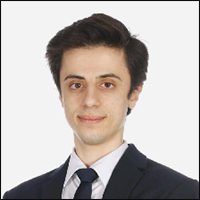 Application Quantum Engineer and Ph.D. student in Quantum Machine Learning at Qilimanjaro Quantum Tech
Application Quantum Engineer and Ph.D. student in Quantum Machine Learning at Qilimanjaro Quantum Tech
Rosa Badia
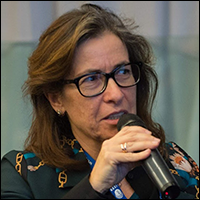 Rosa Badia holds a PhD on Computer Science (1994) from the Technical University of Catalonia (UPC). She is the manager of the Workflows and Distributed Computing research group at the Barcelona Supercomputing Center (BSC). Her current research interest are programming models for complex platforms (from edge, fog, to Clouds and large HPC systems). The group led by Dr. Badia has been developing StarSs programming model for more than 10 years, with a high success in adoption by application developers. Currently the group focuses its efforts in PyCOMPSs/COMPSs, an instance of the programming model for distributed computing including Cloud. Dr Badia has published near 200 papers in international conferences and journals in the topics of her research. Her group is very active in projects funded by the European Commission and in contracts with industry.
Rosa Badia holds a PhD on Computer Science (1994) from the Technical University of Catalonia (UPC). She is the manager of the Workflows and Distributed Computing research group at the Barcelona Supercomputing Center (BSC). Her current research interest are programming models for complex platforms (from edge, fog, to Clouds and large HPC systems). The group led by Dr. Badia has been developing StarSs programming model for more than 10 years, with a high success in adoption by application developers. Currently the group focuses its efforts in PyCOMPSs/COMPSs, an instance of the programming model for distributed computing including Cloud. Dr Badia has published near 200 papers in international conferences and journals in the topics of her research. Her group is very active in projects funded by the European Commission and in contracts with industry.
Andrea Bartolini
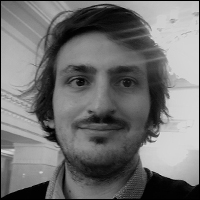 Andrea Bartolini holds an associate professor position with the Department of Electrical, Electronic and Information Engineering (Guglielmo Marconi) at the University of Bologna. He was a postdoctoral researcher with Integrated Systems Laboratory, Swiss Federal Institute of Technology, Zurich. He has authored or co-authored more than 180 papers in peer-reviewed international journals and conferences, and several book chapters with focus on dynamic resource management—ranging from embedded to large scale HPC systems. He has collaborated with several international research and companies. Andrea Bartolini has been the main responsible for the design of advanced power management and monitoring support on the first Cavium ThunderX cluster, the D.A.V.I.D.E. and Marconi100 supercomputers. Since its inception Andrea Bartolini has served as the technical leader for the European-processor-initiative power management design. From 2021, Andrea Bartolini collaborated with CINECA and E4 engineering in the design of the Monte Cimone HPC cluster – the first RISC-V HPC cluster.
Andrea Bartolini holds an associate professor position with the Department of Electrical, Electronic and Information Engineering (Guglielmo Marconi) at the University of Bologna. He was a postdoctoral researcher with Integrated Systems Laboratory, Swiss Federal Institute of Technology, Zurich. He has authored or co-authored more than 180 papers in peer-reviewed international journals and conferences, and several book chapters with focus on dynamic resource management—ranging from embedded to large scale HPC systems. He has collaborated with several international research and companies. Andrea Bartolini has been the main responsible for the design of advanced power management and monitoring support on the first Cavium ThunderX cluster, the D.A.V.I.D.E. and Marconi100 supercomputers. Since its inception Andrea Bartolini has served as the technical leader for the European-processor-initiative power management design. From 2021, Andrea Bartolini collaborated with CINECA and E4 engineering in the design of the Monte Cimone HPC cluster – the first RISC-V HPC cluster.
Luca Benini
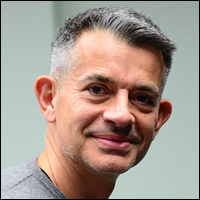 Luca Benini holds the chair of digital Circuits and systems at ETHZ and is Full Professor at the Universita di Bologna. He received a PhD from Stanford University. Dr. Benini’s research interests are in energy-efficient parallel computing systems, smart sensing micro-systems and machine learning hardware. He is a Fellow of the IEEE, of the ACM and a member of the Academia Europaea. He is the recipient of the 2016 IEEE CAS Mac Van Valkenburg award, the 2020 EDAA achievement Award, the 2020 ACM/IEEE A. Richard Newton Award and the 2023 IEEE CS E.J. McCluskey Award.
Luca Benini holds the chair of digital Circuits and systems at ETHZ and is Full Professor at the Universita di Bologna. He received a PhD from Stanford University. Dr. Benini’s research interests are in energy-efficient parallel computing systems, smart sensing micro-systems and machine learning hardware. He is a Fellow of the IEEE, of the ACM and a member of the Academia Europaea. He is the recipient of the 2016 IEEE CAS Mac Van Valkenburg award, the 2020 EDAA achievement Award, the 2020 ACM/IEEE A. Richard Newton Award and the 2023 IEEE CS E.J. McCluskey Award.
Josep Lluis Berral
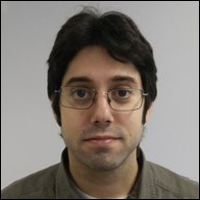 Josep Lluís Berral received his Engineering degree in Informatics (2007), M.Sc. in Computer Architecture (2008), and Ph.D. in Computer Science (2013) at BarcelonaTech-UPC. He works in high-performance data-analytics and machine learning on cloud environments at the Department of Computer Architecture @ Barcelona-Tech (DAC-UPC) and the Barcelona Supercomputing Center (BSC). He is the manager of the “Computing Resources Orchestration and Management for AI” group (UPC + BSC). He is currently collaborating in European projects and private projects with Intel and IBM, and previously with Databricks, Microsoft, Cisco and Petrobras. He did research at the “High-Performance Computing” group and at the “Relational Algorithms, Complexity and Learning” group at UPC. He has also been at the DarkLab group at Rutgers University (Piscataway, NJ) in 2012, also in IBM Watson Labs (Yorktown, NY) in 2019. He was awarded with a Juan de la Cierva research fellowship from the Spanish Ministry of Economy in 2016. He is an IEEE and ACM member.
Josep Lluís Berral received his Engineering degree in Informatics (2007), M.Sc. in Computer Architecture (2008), and Ph.D. in Computer Science (2013) at BarcelonaTech-UPC. He works in high-performance data-analytics and machine learning on cloud environments at the Department of Computer Architecture @ Barcelona-Tech (DAC-UPC) and the Barcelona Supercomputing Center (BSC). He is the manager of the “Computing Resources Orchestration and Management for AI” group (UPC + BSC). He is currently collaborating in European projects and private projects with Intel and IBM, and previously with Databricks, Microsoft, Cisco and Petrobras. He did research at the “High-Performance Computing” group and at the “Relational Algorithms, Complexity and Learning” group at UPC. He has also been at the DarkLab group at Rutgers University (Piscataway, NJ) in 2012, also in IBM Watson Labs (Yorktown, NY) in 2019. He was awarded with a Juan de la Cierva research fellowship from the Spanish Ministry of Economy in 2016. He is an IEEE and ACM member.
Júlia Falcão
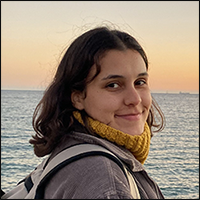 Júlia Falcão is a Junior Research Engineer at the Barcelona Supercomputing Center (BSC). She holds a bachelor’s degree in Computer Science from the Fluminense Federal University (UFF) in Brazil and a double master’s degree in Computational Linguistics from the University of the Basque Country (UPV/EHU) and the University of Malta. She works in the Language Technologies Lab at the BSC on the evaluation of multilingual Large Language Models (LLMs) and coordinates tasks related to social and cognitive bias in the models.
Júlia Falcão is a Junior Research Engineer at the Barcelona Supercomputing Center (BSC). She holds a bachelor’s degree in Computer Science from the Fluminense Federal University (UFF) in Brazil and a double master’s degree in Computational Linguistics from the University of the Basque Country (UPV/EHU) and the University of Malta. She works in the Language Technologies Lab at the BSC on the evaluation of multilingual Large Language Models (LLMs) and coordinates tasks related to social and cognitive bias in the models.
Guillermo Abad López
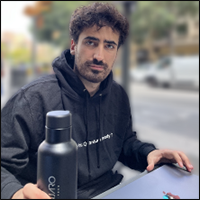 Quantum Software Engineer at Qilimanjaro Quantum Tech
Quantum Software Engineer at Qilimanjaro Quantum Tech
Javier Sabariego
 Backend and infrastructure engineer at Qilimanjaro-Quantum Tech.
Backend and infrastructure engineer at Qilimanjaro-Quantum Tech.
Giorgio Scorzelli
Giorgio Scorzelli is the Director of Software Development at the Center for Extreme Data Management, Analysis, and Visualization (CEDMAV) at the University of Utah, and also serves as the Software Development Director for the National Science Data Fabric (NSDF). He leads a team focused on building advanced software systems to manage large and heterogeneous datasets in high-performance computing (HPC) environments. With more than 20 years of experience in software development, Scorzelli specializes in big data analytics, real-time visualization, and topological data analysis. In his role with NSDF, he supports the creation of a scientific content delivery network aimed at democratizing access to data and accelerating data-driven scientific discovery.
Michela Taufer
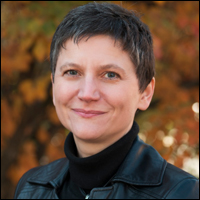 Michela Taufer is an AAAS Fellow and an ACM Distinguished Scientist. She holds the Jack Dongarra Professorship in High-Performance Computing in the Department of Electrical Engineering and Computer Science at the University of Tennessee Knoxville (UTK). She earned her undergraduate degrees in Computer Engineering from the University of Padova (Italy) and her doctoral degree in Computer Science from the Swiss Federal Institute of Technology or ETH (Switzerland). She has a long history of interdisciplinary work with scientists. Her research interests include software applications and their advance programmability in heterogeneous computing (i.e., multi-core platforms and GPUs); cloud computing and volunteer computing; and performance analysis, modeling and optimization of multi-scale applications. She has been serving as the principal investigator of several NSF collaborative projects. She also has significant experience in mentoring a diverse population of students on interdisciplinary research.Her community service includes efforts to spread high-performance computing participation in undergraduate education and research as well as efforts to increase the interest and participation of diverse populations in interdisciplinary studies.
Michela Taufer is an AAAS Fellow and an ACM Distinguished Scientist. She holds the Jack Dongarra Professorship in High-Performance Computing in the Department of Electrical Engineering and Computer Science at the University of Tennessee Knoxville (UTK). She earned her undergraduate degrees in Computer Engineering from the University of Padova (Italy) and her doctoral degree in Computer Science from the Swiss Federal Institute of Technology or ETH (Switzerland). She has a long history of interdisciplinary work with scientists. Her research interests include software applications and their advance programmability in heterogeneous computing (i.e., multi-core platforms and GPUs); cloud computing and volunteer computing; and performance analysis, modeling and optimization of multi-scale applications. She has been serving as the principal investigator of several NSF collaborative projects. She also has significant experience in mentoring a diverse population of students on interdisciplinary research.Her community service includes efforts to spread high-performance computing participation in undergraduate education and research as well as efforts to increase the interest and participation of diverse populations in interdisciplinary studies.
Ivan Vargas Valdivieso
 Ivan Vargas Valdivieso (BSC, UPC) is a Ph.D. candidate at the Universitat Politecnica de Catalunya advised by Dr. Adrian Cristal and Dr. Osman Unsal. His research interests are in computer architecture, Process-in-memory, Vector Architectures, Database Management Systems and hardware simulators. His research focuses on acceleration of DBMS through novel hardware-software codesign. Ivan is interested in hardware innovations in the areas of vector computing, database management systems and computer architecture simulators. His research focuses on acceleration of DBMS through novel hardware-software codesign.
Ivan Vargas Valdivieso (BSC, UPC) is a Ph.D. candidate at the Universitat Politecnica de Catalunya advised by Dr. Adrian Cristal and Dr. Osman Unsal. His research interests are in computer architecture, Process-in-memory, Vector Architectures, Database Management Systems and hardware simulators. His research focuses on acceleration of DBMS through novel hardware-software codesign. Ivan is interested in hardware innovations in the areas of vector computing, database management systems and computer architecture simulators. His research focuses on acceleration of DBMS through novel hardware-software codesign.
Mateo Valero
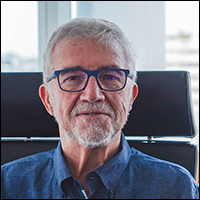 Mateo Valero, http://www.bsc.es/cv-mateo/" is profesor of Computer Architecture at Technical University of Catalonia (UPC) and is the Founding Director of the Barcelona Supercomputing Center, where his research focuses on high performance computing architectures. He has published approximately 700 papers, has served in the organization of more than 300 International Conferences and has given more than 600 invited talks. Prof. Valero has been honored with numerous awards, among them the three most relevant awards in the Computer Architecture field: The Eckert-Mauchly Award 2007 by IEEE and ACM, the Seymour Cray Award 2015 by IEEE and the Charles Babbage 2017 by IEEE. Among other awards, Prof. Valero has received The Harry Goode Award 2009 by IEEE, The Distinguish Service Award by ACM and the Spanish National awards “Julio Rey Pastor” and “Leonardo Torres Quevedo”. Prof. Valero is a "Hall of the Fame" member of the ICT European Program (selected as one of the 25 most influents European researchers in IT during the period 1983-2008, Lyon, November 2008). In 2020 he was awarded the “HPCWire Reader’s Choice Awards” “for his exceptional leadership in HPC” and for “being an HPC pioneer since 1990 and the driving force behind the renaissance of European HPC independence”. He has been also honored with “Condecoración de la Orden Mexicana del Águila Azteca” 2018, the highest recognition granted by the Mexican Government. Prof. Valero holds Honorary Doctorate by 10 Universities, is member of 10 academies and a fellow of IEEE and ACM, and Fellow of AAIA, Asia-Pacific Artificial Intelligence Association. In 1998 Mateo Valero was distinguished as “Favourite Son” of his home town, Alfamén (Zaragoza) and in 2006, his native town of Alfamén named its Public School after him.
Mateo Valero, http://www.bsc.es/cv-mateo/" is profesor of Computer Architecture at Technical University of Catalonia (UPC) and is the Founding Director of the Barcelona Supercomputing Center, where his research focuses on high performance computing architectures. He has published approximately 700 papers, has served in the organization of more than 300 International Conferences and has given more than 600 invited talks. Prof. Valero has been honored with numerous awards, among them the three most relevant awards in the Computer Architecture field: The Eckert-Mauchly Award 2007 by IEEE and ACM, the Seymour Cray Award 2015 by IEEE and the Charles Babbage 2017 by IEEE. Among other awards, Prof. Valero has received The Harry Goode Award 2009 by IEEE, The Distinguish Service Award by ACM and the Spanish National awards “Julio Rey Pastor” and “Leonardo Torres Quevedo”. Prof. Valero is a "Hall of the Fame" member of the ICT European Program (selected as one of the 25 most influents European researchers in IT during the period 1983-2008, Lyon, November 2008). In 2020 he was awarded the “HPCWire Reader’s Choice Awards” “for his exceptional leadership in HPC” and for “being an HPC pioneer since 1990 and the driving force behind the renaissance of European HPC independence”. He has been also honored with “Condecoración de la Orden Mexicana del Águila Azteca” 2018, the highest recognition granted by the Mexican Government. Prof. Valero holds Honorary Doctorate by 10 Universities, is member of 10 academies and a fellow of IEEE and ACM, and Fellow of AAIA, Asia-Pacific Artificial Intelligence Association. In 1998 Mateo Valero was distinguished as “Favourite Son” of his home town, Alfamén (Zaragoza) and in 2006, his native town of Alfamén named its Public School after him.
Pablo Vizcaino
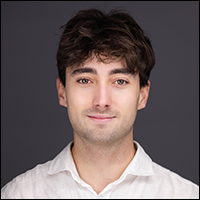 Pablo Vizcaino is a second-year Computer Architecture PhD student at the Universitat Politècnica de Catalunya (UPC), where he previously earned a bachelor's degree in Computer Science and a master's degree in Innovation and Research in Informatics. He is also a researcher at the Barcelona Supercomputing Center, working on the deployment and evaluation of emerging prototypes for High Performance Computing, the development of emulation and performance analysis tools, and the study of scientific applications on those prototypes. He is currently focused on architectures based on RISC-V, specifically those leveraging the vector extension.
Pablo Vizcaino is a second-year Computer Architecture PhD student at the Universitat Politècnica de Catalunya (UPC), where he previously earned a bachelor's degree in Computer Science and a master's degree in Innovation and Research in Informatics. He is also a researcher at the Barcelona Supercomputing Center, working on the deployment and evaluation of emerging prototypes for High Performance Computing, the development of emulation and performance analysis tools, and the study of scientific applications on those prototypes. He is currently focused on architectures based on RISC-V, specifically those leveraging the vector extension.





